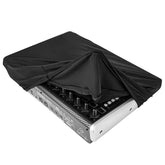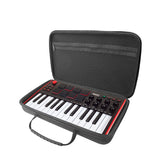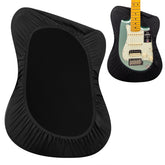Mastering the Art of Guitar String Selection: A Comprehensive Guide
When choosing the right guitar strings for oneself, we hope that the strings are easy to play, possess excellent sound quality, durability, and also take into consideration the factor of price. However, in the market, there is a wide variety of guitar string brands and types, and faced with a dazzling array of choices, how can we make the right decision based on our own needs? Next, let's comprehensively understand the fundamental knowledge of guitar strings together, enabling you to have a thorough understanding of your strings!
01 Material of Guitar Strings
- Plain Strings: Constructed with the simplest fine steel wires, used for the 1st, 2nd, and 3rd strings.
- Wound Strings: Strings with metal wires wound around the steel core, used for the 4th, 5th, and 6th strings.
The difference lies in the fact that plain strings have minimal sound variation, while wound strings exhibit significant sound differences, with winding material being a major factor.
02 Most Commonly Used Winding Materials
- Stainless Steel: Corrosion-resistant, bright sound, suitable for Rock, Metal, and Fusion players.
- Pure Nickel: Retro, warm tone, favored by Country and Soul musicians.
- Nickel-Plated Steel: Combining the characteristics of stainless steel and pure nickel, widely embraced by pop music players.
- Nickel-Plated Copper: Bright overtones, approaching acoustic string tones, commonly used in electric guitars.
- Brass: Commonly used in folk instruments, with higher zinc content producing brighter tones.
- Red Copper: Warm tone, the warmest among copper-wound strings.
- Nylon Wound: Low tension, suitable for guitar beginners.
- Polymer Coated: Anti-oxidation, unique sound.
- Color Coated: Enhanced visual effects, properties similar to polymer coating.
03 Thickness Specifications of Guitar Strings
- Acoustic Guitar: Extra Light, Custom Light, Light, Medium, Heavy
- Electric Guitar: Extra Super Light, Super Light, Light, Medium, Heavy
Thickness affects the feel and tension, thicker strings requiring greater force and adaptation.
By understanding the materials, winding materials, thickness specifications, and core differences of guitar strings, we can make a more comprehensive selection that suits our preferences, leading to a better playing experience and sound performance. We hope this article provides useful knowledge and techniques for guitar enthusiasts, enabling you to excel on the path of guitar playing! Remember to choose the strings that suit your needs and preferences, and enjoy the pleasure that music brings!






